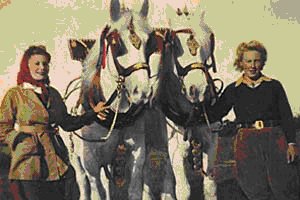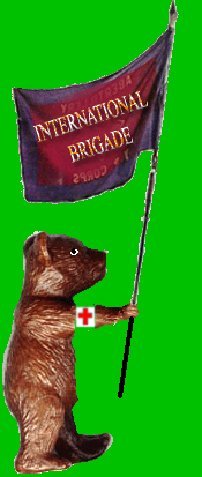Museum News
Our Children’s Club will shortly be getting off the ground, with small groups of children coming along one Saturday a month. Each visit will follow a particular theme and will be run by Communities First. Call at the Museum for more details.
Coffee Mornings
We are holding a St Davids Day coffee morning on Saturday 1st March. There will be a welshcake cookery demonstration and recitals from Margaret Gilson, Margaret Cook and Gordon Rowlands (you have to guess who is doing what) so please come along. Entry £1 including a welshcake with your tea or coffee.
You will see from the Diary that for a few weeks from late March into April the Museum will host a touring exhibition on the Partition of India, organised through Aik Saaph. We are planning a rather special coffee morning to complement the exhibition, with a speaker on the exhibition, tasters of Asian cakes and sweets, and traditional music so please be sure to put Saturday 19th April in your diary. Recipes will be available at the Museum for those who would like to help with the cakes and sweets, and donations of our more usual coffee morning cakes would also be appreciated.
Lecture Programme
Harry Vagg, our February speaker, transported us from a grey and chilly Wales to the sunnier climes of Italy. His films showed some of the lesser known aspects of that country and were much appreciated by his audience. We have an interesting range of speakers for the remainder of the lecture season – something for everyone, we hope. Please note that the Ralph Robinson Memorial Lecture on May will be on the second rather than the first Wednesday of the month.
Annual subscriptions
£5 membership fees now due. Please pay at or send your cheques to the Museum.
Fund raising February - £258
Diary Dates
Saturday 1st March 2008 – St Davids Day Coffee Morning with welshcake cookery demonstration and Welsh music. Tickets £1
Wednesday 5th March 2008 – Mons on the March by Richie Rudd
28th March to 28th April 2008 – Exhibition on the Partition of India
Wednesday 2nd April 2008 –Tinplates and Tramroads, Aspects of Caerleon’s Industrial Past by Malcolm Johnson
Saturday 19th April 2008 – Partition of India Coffee Morning with Asian cakes, sweets and music. Tickets £1
Wednesday 14th May 2008 – Ralph Robinson Memorial Lecture, The Lost Pubs of Abergavenny by Frank Olding
Lectures start at 7.00pm in the Metropole Theatre, with teas and a chat downstairs in the Museum afterwards. Entry is £2 and the public are most welcome.
Hospital Appeal
The knitted puddings and chicks for Velindre Hospital fund-raising were much appreciated. The next ‘project’ is knitted hats and bags for women cancer patients. If you would like to help, the knitting patterns are available at the Museum.
Fool Britannia – Back to the Future?
Final Episode – Back to 2007 AD
 Phew! What a nightmare! Although, hopefully, the hint of cannibalism is a bit farfetched – still, desperate times, desperate measures. No – surely not – he probably just meant they could join forces and both go after and share the same quarry. At least a step in the right direction – only half a deer being better than empty bellies. Perhaps their descendants will set up a society called “LPimalthoeeeznotwonovus” – a new Samaritans?
Phew! What a nightmare! Although, hopefully, the hint of cannibalism is a bit farfetched – still, desperate times, desperate measures. No – surely not – he probably just meant they could join forces and both go after and share the same quarry. At least a step in the right direction – only half a deer being better than empty bellies. Perhaps their descendants will set up a society called “LPimalthoeeeznotwonovus” – a new Samaritans?
Nevertheless we can’t risk it. PLEASE don’t let any of this really happen. Let’s all pull together again and re-form a United Britain, otherwise there will be no Britannia left for any of us to rule, or fool!
Janet M Preece, November 2007
Poet’s Corner
‘NIGHT OUT’
He stropped his razor,
lathered his face with brush
rubbed on a piece of household
soap in its place on a chipped
boot shaped shaving mug.
Carefully removing two days stubble,
with a cut throat razor, studied the
result in an old wooden framed mirror
hung on flower patterned wall paper.
Boots polished to gleam, he sang
‘When I grow too old to dream’,
while I as a small boy gazed in awe
of his overwhelming happiness,
his preparations for one and a half
hours out for a couple of pints
of beer on Friday pay day evening.
He would still rise next day at
5 a.m. for that week’s final shift
in the black bowels of the earth,
then Sunday free of labour he
would rest from life’s hard slog.
Fully employed but still poor,
he would never see benefits
of modern technology.
But a good man was my dad.
Gordon Rowlands March, 2007
Abertillery 1967 – were you at this dinner?
St David’s Day Dinner
at the….
BUSH HOTEL, ABERTILLERY
WEDNESDAY, MARCH 1st, 1967
Guest Speaker:
EYNON EVANS
Famous Welsh Dramatist
Chairman: Councillor Brinley Evans
6.30 for 7 p.m. Musical programme 15/-
C.W. Bryant, Secretary
A letter from Essex
“A local acquaintance who coached Morfydd and I in indoor bowls some 10 years ago, had read my article in the Daily Mail about Bevin Boys. He brought my attention to the enclosed newspaper article in the Maldon Standard Newspaper.
As a result of this article I contacted Curator Marilyn Bullivant of the Combined Military Services Museum and we arranged a meeting at the Museum. I was also contacted by the designer of commemorative badges based in London.
During my meeting with Curator Marilyn I left with her for perusal:
- The first printed book of the Abertillery and District Museum Society with its picture of our mining community.
- The Abertillery and District Museum Society Newsletter September 2007 with its article on Bevin Boys.
- The Newsletter August 2007 and all its Museum Matters.
Further meetings are to take place and hopefully a badges presentation day in July 2008.”
Arthur Lewis OBE
The article enclosed with Mr Lewis’s letter referred to the proposed extension of the Combined Military Services Museum which, like us, was awarded a substantial grant from the Heritage Lottery Fund. The extension will accommodate extra display and meeting spaces, including for children’s visits – does that sound familiar? The Museum houses a wide range of items relating to British Military History including one of the Country’s best Civil War Armour collections as well as more recent items from the recent Gulf Wars and, reputedly, the best ‘Spy Collection’ on public display. Maldon is 10 miles east of Chelmsford and so if you are in that area, this is clearly a museum worth visiting.
Women's Land Army Badges
A new scheme acknowledges the tremendous efforts of the Women’s Land Army and Women’s Timber Corps by presenting their surviving members with a specially designed badge commemorating their service and acknowledging the debt that the country owes them.
Members who wish to apply for a badge will need to complete a short application form. Applicants will need to supply their date of birth, approximate dates of service in the Women’s Land Army or Women’s Timber Corps, and the location at which they were stationed. The badges are being specially designed and it is hoped they will be presented this summer.
A number of our readers have written about their experiences in the Land Army, including Margaret Snell (sadly now deceased) and Enid Dean. If you were in the Land Army, please let us have your stories.
The WLA - the Land Girls - was formed at the outbreak of World War II to work on the land, freeing the male workers to go to war. By 1943 there were some 80,000 young women working in every aspect of agriculture to feed the nation. With their uniform of green ties and jumpers and brown felt slouch hats they worked from dawn to dusk each day milking cows, digging ditches, sowing seeds and harvesting crops. The WLA was not formally disbanded until 1950; it remained in existence following the ending of hostilities, doing vital jobs on the land until mobilisation was complete.
Application forms are available on-line or you can write to:
Defra 5E, Millbank c/o 17 Smith Square,
London SW1P 3JR
Email: womenslandarmy@defra.gsi.gov.uk
Telephone: Defra Helpline 08459 335577

MUSEUM MATTERS
I was sent this history of one of the daughters of Abertillery by Mr Michael Walker and decided to use it as this months museum matters.
Nurse Thora Silverthorne
Thora Silverthorne was born on the 25th November 1910 the daughter of George Richard Silverthorne a coal hewer and Sarah Boyt the daughter of a Hauler from Bargoed. The family lived at 170 Alma Street, Abertillery. Thora was one of eight Silverthorne children, Olive, Ivy, John (Shun), Betty, Roy and Beleta, Reg, Thora being named after a popular song of the day. Her father worked at the Vivian and Six Bells pits and was an activist in the South Wales Miners Federation (Miners Union) and a founder member of the Abertillery Communist Party. Thora attended the Blaenau Gwent Baptist Chapel Sunday School and was a member of the Choir, which gave Thora a life long love of music. Thora attended the Nantgylo Overflow School in a big old house at Hafod -y-ddol and passed her scholarship at 10 and half in order to attend Abertillery County School.
Her childhood, like so many in the South Wales valleys, was clouded in poverty, however Thora was always quick to point to "richness of the working class life in Abertillery" and the working class solidaridity, describing her childhood as "very happy". One of her memories was the feeding centre for the miners during the 1921 miners strike However her childhood was turned upside down when her mother died suddenly throwing the family deeper into poverty. At 16 Thora joined the Abertillery Young Communist League and chaired many meetings at the Institute including those addressed by Arthur Horner the great communist miners leader; "everyone talked politics in Abertillery" stated Thora.
In 1935 Thora moved to Reading, where her Auntie lived in order to secure work and a new start. Her first job was as a ticket office clerk at the new cinema, then she secured the post of nanny to the local Labour Leading member of Parliament for Sutcliffe-Bartlett .she Joined the Labour Party selling the Daily Worker to local Railwaymen.. Later her father secured employment in the Reading gas works. In 1931 Thora won a place as a probationary nurse at the prestigious John Radcliffe Hospital Infirmary Oxford, where her sister Olive was already a senior nurse. She rejoined the communist party under the leadership of Harry Waterhouse, making lasting friendships with leading communists, such as historians Christopher Hill and Chris Thorneycroft Thora was one of a team of medical and nursing staff from Oxford who tended to the needs of the many Hunger marches (many from Wales) that passed through the City, many were in very poor health, particularly their feet. After her qualification Thora moved to a sister's position at the Theatres at Hammersmith hospital London teaming up with Dr Charles Brook of the Socialist Medical Association, and his nursing wife Iris, both active in the Labour Party. In 1936 after a Fascist coup against the democratically left government in Spain the Socialist Medical Association was formed into the Spanish Medical Aid Committee. Thora keen to help in the struggle to defend Europe from fascism volunteered to nurse in Spain where Thora was democratically elected Matron of a 36 bedded British hospital, a former primitive farm house in Granen near Huesca, Aragon. The conditions resembled that of World War 1, Thora and Dr Alexander Tudor Hart turned the hospital into a model of efficiency. The 14 hour shifts and stress took its toll on Thora’s health. Thora noted that many of her patients were German anti fascists from the Thaelmann Centuria, British International Brigade casualties including her close friend Michael Livesay who died in her arms in June l937. The Nusuing and medical staff were integrated into the International Brigade and Thora was promoted to Sergeant. Thora returned to England and married Dr Kenneth Sinclair Loutit who had also served in Spain along with Thora and set up home in Great Ormond Street. He was elected as a "Unity Front" Councillor prior to the War in Holborn, London. Thora was still continuing to help raise money for Spain,. Later she was on Victoria station to welcome the painter Picasso from the train when he arrived in London. Thora then became sub editor on a publication called Nursing Illustrated, the pay and conditions of nurses forced her to help establish the first union for nurses, the National Association of Nurses in 1937, much to the disapproval of the nursing hierarchy and the establishment. Thora was regulary accused by hospital managers and the Royal college of Nursing of being paid by "Moscow Gold" or not even being a qualified nurse all lies. The National Association of Nurses grew and Thora became its General Secretary.the role was taken over by Nancy Blackburn (Zinkin). The Association was transferred to NUPE led by another Abertillery native Bryn Roberts, who Thora greatly admired.
During the War Thora went to Radbridge, High Wycombe. After the War  Thora became Assistant Secretary of the Socialist Medical Association, working to establish the National Health Service, which was achieved on July 5th 1945, also meeting Clem Attlee to discuss the SMA plans. In 1946 Thora married Nares Craig from Clitheroe, Lancashire a fellow communist party member engineer and architect (and a relative of Lord Craigavon). Thora became a full time union official for the Civil Service Clerical Association and on her retirement moved back to Llynoes, Powys in North Wales for 25 years, where Clive Jenkins and Frank Cousins were regular visitors, returning to London a few years before her death. Thora Siiverthorne died on 17th January, 1999 and her service was held at Marylebone cemetery 25th January, the Valley of Jarama, the Internationale, Cwm Rhondda and a recording of the Welsh hymn "Land of my fathers" by Paul Robeson were all part of the service. Thora's coffin was draped with the International Brigade banner.
Thora became Assistant Secretary of the Socialist Medical Association, working to establish the National Health Service, which was achieved on July 5th 1945, also meeting Clem Attlee to discuss the SMA plans. In 1946 Thora married Nares Craig from Clitheroe, Lancashire a fellow communist party member engineer and architect (and a relative of Lord Craigavon). Thora became a full time union official for the Civil Service Clerical Association and on her retirement moved back to Llynoes, Powys in North Wales for 25 years, where Clive Jenkins and Frank Cousins were regular visitors, returning to London a few years before her death. Thora Siiverthorne died on 17th January, 1999 and her service was held at Marylebone cemetery 25th January, the Valley of Jarama, the Internationale, Cwm Rhondda and a recording of the Welsh hymn "Land of my fathers" by Paul Robeson were all part of the service. Thora's coffin was draped with the International Brigade banner.


